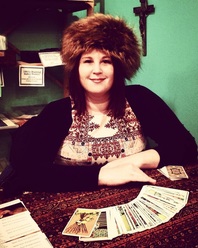|
This is the first in a series about outing ourselves when we read tarot to others. This is Part I. Deciding when to tell others about tarot is a highly individual process. There usually comes a time when we want to share our growing tarot skills with others, or find like-minded people who also love tarot. At some point, we reach a crossroads; do we tell others that we read tarot, and if so, how? If we feel the call so strongly that we desire to read on a professional level, how do we negotiate the protocol of coming out of the tarot box? The decision to become a tarot practitioner comes with a host of challenges and issues to consider. At each step in the process of revelation, we pause to reflect upon whether we should, and if we can, how to go about telling people about this thing called tarot and why we think it’s so great. Our tarot origin story affects how we come out of the tarot box. A tarot origin story consists of the years leading up to the first time you placed your hands on a tarot deck and claimed it for your own. The origin story is a major factor for how and in what way we share that we read tarot for others, it is and our personal narrative. Our narrative is in the stories we learned, the stories we lived and the stories we repeat to ourselves. In order to approach telling others about our tarot practice, we first need to understand what we learned about family, cultural, and social messages and how those internalized beliefs impact our decisions today. In grappling with the process of a tarot coming out is to deeply remember and reflect upon your tarot origin story. How did you learn about tarot? Did anyone help you in your first steps? What family and cultural messages did you get, and what internalized beliefs do you have around acts of rebellion, sticking out, being laughed at or feared? Since every family is like its own universe to a child, your learned messages from parents and grandparents have a huge impact on how you own your work in the world. Your religious upbringing will have a factor as well as your own unique socioeconomic background. All of these aspects collide into a melange of conscious and unconscious push and pull factors. For many of us, small rebellions begin before we actually pick up a tarot deck. At 13, I decided that Christian Baptist religious theology was not for me. The ‘no’s’ I heard from the pulpit did not match the yeses I saw all around me in the wind, on the storm front, in a bean splitting open to unfurl its first green tendril; to me, the world is full of yes. For me, God was not in church, nor was God a Father, but rather an organic process. I had an awakening with these realizations, these became my first cognitive dissonances between what my upbringing taught me, and what I saw. I awoke to the idea that I could come to my own conclusions about things and the fissures only deepened from there. The world, I learned, was not what it seemed. Hindsight being 20:20 I have come to understand this as the Fool meets the High Priestess: feelings, knowings, and instinct upend what I was taught. I learned my first important lesson; the call of following my own intuitive guidance. I could not go back to the story I was spoon-fed. I could not sit in a church that was punitive, dismissive, and non-inclusive. The woods were beckoning and with the High Priestess’ guidance, I made my choice. My tarot origin story holds themes in rebellion and mystery, intuition and questioning authority. My watershed moment came one Sunday morning, lazing about in my pajamas as the rest of my family were busily dressing in their Sunday best; I remember the smell of toast and coffee, the sounds of getting ready, a large family of 7. My Father came into my room, “Put your clothes on, we are going to church.” “No.” I replied in that calm way we do when we know we are absolutely standing in our truth. When the inside of you is not trembling, when you know that you are where and how and who you need to be. “If you don’t go, I am going to make you.” Dad said, his presence magically growing larger in my small room in the way that male authority can. An edge of small violence in the back of his throat, a threat I know he was more than capable to supply. Solid as stones I replied, “If you make me, I am going just like this, in my pajamas. I am not getting dressed.” “I will think of a suitable punishment when I get back” he said, calmly out of character for him. I stayed in my room, hearing the family eventually leave the house and it became so quiet, I felt so free. The threatened punishment never came. It was the first time I had ever stood my ground, and I learned it was possible to push back. As a tarot reader, I understand that this story embodied the Fool meeting the Emperor. I had to rebel against male authority and this was an intrinsic part of my process. In tarot, we know that finding the question is almost as important as the answer. How can we become effective in our craft if we live within a dogma that discourages questions? We must now negotiate the process of our tarot work if we lived within a dogmatic patriarchal structure. How do we mediate the process of family authority, especially if we came to tarot as a minor? How might we accommodate the boyfriends, the husbands, the partners who do not and cannot understand? Within my own story, the choice for radical rebellion was my particular strategy but it is not, nor should be, the only one. It is so obvious to me now that the arrival of tarot was inevitable. In fact, it took a group of people who had already come out of their own closets to help me with my own. I was lucky to be living in a liberal place in liberal times (for the 90's)and my neighbors up the street were the local drag queens of my small town.
Two houses comprised of beautiful, complicated, aching men living under the deep shadow of AIDS. Men who knew a thing or two about owning a truth, about path making their own meaning, and incredibly, about helping a lost girl by showing her how to own who she is. My first deck was gifted to me on my 14th birthday by a man who was a bodybuilder (we lost touch, if you ever read this, please find me) and made teddy bears by hand. He was gentle and kind, and I spent many after school hours at his house drinking grape soda. The house across the street from him contained a rowdy bunch of Drag Queens and they delighted in making my drama club costumes and outfitting me for any fabulous situation my heart desired. They taught me the love from men that was non-patriarchal. A male love that was open and easy, that watered my heart and fed my hungry soul. It were these men that not only encouraged my first steps into tarot, they embraced it. I read for all of them, stumbling in my first steps as my intuition struggled to work with the cards. I was a fast study though, I had the cards memorized within a few weeks and was doing complicated spreads by week six. Months later, my friends held a Victor Victoria party for Halloween. As you can guess, it was a huge blow-out. These men transformed both themselves and their space into magic. They asked me to come read tarot at their party and trusting them more than myself I said yes. I remember reading for a lot of people, and they were gentle and patient as I worked the cards. Towards the end of the night, I ended up spending significant time with a young man, he was perhaps 20 and he told me about his love woes. I was 14 and while surprised that this older person would confide in me, I felt such contentedness in being able to help him in this way. It felt like home, I was home. The key fit the lock. The arrival of an open-minded community into my life was the Fool meeting the Star; when we are feeling our most lost, there is Guidance that arrives often in unexpected ways. As tarot readers we need a community of others who can hold space for us, just as we are. Within these safe spaces that our community creates, we are able to safely indulge in the practice of our craft impossible to cultivate by ourselves. Each tarot origin story impacts how we approach this revelatory process. I was fortunate to be picked up by people who accepted me shortly after my rebellious act against patriarchy. Those two factors: successful rebellion replaced with affection and acceptance eventually gave me the internal tools I needed to now embrace my tarot profession wholly and completely. Had either aspect been missing, I doubt that I would have been authentic in owning my own truth. If my origin story was different, its outcome would be different, too. My seemingly fearless public presence is not because I am actually more fearless than another reader, but rather, I was given critical tools at important times in my development that made me resilient later on. The good news is, is that we can cultivate these tools at any time in our lives. We can create for ourselves new origin stories that supplant the old. But first, we need to understand how our stories define us now. If you are still in the tarot box. Please stay tuned. I aim to provide with you a working framework for coming into yourself as you come out in the world. The first part is to answer the questions I laid out in bold above and deeply ponder the lines of narrative that have brought you to the moment when you took a deck into your capable hands.
0 Comments
Which one of these statements do you agree with? Women are bad drivers. Teenagers are lazy. Tarot card readers are con artists. Wide sweeping statements feel so definitive that it is easy to believe them. Black and white thinking feels so much more comfortable than grey. It feels good to pronounce a belief about a whole group of people believing that our judgement is right. Stereotyping is based out of a need to categorize, condemn, and ultimately feel better than the people we may be talking about. Have I personally watched every single woman drive, and do I have the certifications necessary to make that kind of judgement call? While some teens might be slow in the motivation department, there are many examples of the opposite. However, I hear the third statement regularly and without question that it is indeed, true: “Tarot readers are all con artists.” Rational, objective, science-minded folks eat up the social consensus regarding tarot. Logical and fair-minded people regularly denounce a whole field without ever having visited a reader. What is the first premise in scientific inquiry? Observation. Have these people suddenly forgotten the very foundation of their beliefs in the rush to denounce what they might not know anything about? How can this be? How is it that while we are quick to denounce stereotypes we are able to make the exception with tarot readers? It is, I suspect, due to tarot’s public image coupled with an incorrect assumption promulgated by popular culture and the co-opting of tarot by people with questionable ethics. Tarot is not the problem. Shitty people using tarot are the problem. Google up any image of a tarot reader in the movies or TV shows and more often than not we are treated to a mysterious, dark-haired woman. This woman is of indeterminate background (an inelegent nod to the idea that ‘they are foreign’) is sitting in a darkly lit room, ready to receive a questioner. She pronounces the fate of said character for good or ill. This fate is unalterable and our tarot reader has the ability to see into that future that is already written out for us. A search for the words ‘tarot reader’ also reveals con artists who use tarot to prey upon the innocent. One need not look far to read stories about a certain actress in a fake Jamaican accent imploring you to call now. Not far behind her are so-called tarot readers who were jailed after husting tens of thousands of dollars from the wealthy or the desperate. Finally, the bias towards tarot are often from people who question the very nature of tarot and what it does. They believe that tarot does not work, and anyone who believes in it is either gullible or a con artist (see that “all, never, or always” thinking here)? But the thing is is that the underlying assumptions about how tarot works are inaccurate. That assumption was unquestionably formed by some real bad actors (pun intended). So how can we form a truly informed opinion if we are working off of assumptions that are patently false or misunderstood? We can’t. It is easy to assume that our underlying beliefs that form the basis of our opinions are accurate. But that it is not scientific inquiry. Rather, that is bias. Bias is often the byproduct of a closed mind who frankly stopped thinking the moment their irrational criticism began to rear it’s head. It is this bias that hounds professional, honest, and earnest readers. In short, we are a field green-lighted for condemnation. This condemnation is largely based on a complete fantasy regarding what we do and how we do it. Have people completely given up on the banking system because of the Great Recession? Are lawyers ran out of town with crowds of people holding pitchforks? Of course not. Because we know that while there are some unscrupulous bankers and lawyers, we also know that not all of them are. And while someone might not understand how tarot works, that lack of understanding does not mean that tarot readers are selling snake oil. Tarot is having a moment. Tarot is being normalised by a generation of people who are willing to dive into the mystery of personal truths. More than ever, there are professionals in this field who take the work of reading very seriously and treat their craft with the professionalism it deserves. Tarot is not going anywhere, and just like massage and acupuncture and herbalism, it is moving towards a stable norm. While tarot has a PR problem now, I see the shift on the horizon. I look forward to the day where I can say I am a professional reader without cringing or avoiding the question because I don’t want to deal with some people’s bias. I cannot wait to be open and comfortable with this passion of mine and my work in the way it deserves. A a full time professional reader, I admit, I can get mighty pedantic about things. Splitting tarot hairs with colleagues is a love of mine and I am no stranger to debating the finer points of tarot and tarot readings. Like any reader, I also have my pet peeves and as my 2nd grade report card mentioned, "Jenna is opinionated." So here I share with you, dear reader, my opinions about white washing tarot specifically as it pertains to the Death card. It is very common in tarot books, among tarot readers to say as soon as the Death card is cast, "Oh, yeah this is Death... but actually it really just means Transformation!" Quick to lessen the blow of the message of death, we gloss over the pain, heartache, hard reality that is the Death card and I think when we do this we are disrespecting the energy, intent and message that this card may have for us. It is not uncommon to find tarot decks that have completely vanquished Death forever from our tarot shores, rewriting the card to mean Transformation or Phoenix Rising, "Don't worry about any of that Death business because you will rise from the ashes, girlfriend!!" Doreen Virtue's Fairy and Angel decks have done away from the messiness of Death altogether--she renamed them as Release. The only way I actually knew she was indeed replacing the Death card with Release is because she kept the number placement that is traditional for Death: number 13. It is no coincidence that Death is in the 13th place for 13 has long been viewed as a bad luck number throughout Europe for centuries. If Death actually means Transformation or Release and was so very positive, why would it hold the 13th position? I will say, however, that she does use Azreal who is the angel of Death, but this is done in the kindest most white washed way possible. The emphasis here is again, on moving on. But I argue that this is not the intent of Death. The message of Death is endings, not new beginnings. Tarot comes out of a time where 2 out of 3 children died, if someone lived to 50 that was considered a ripe elder age. There was disease, accidents, superstition and a lack of hygiene awareness or even what we would consider basic medical knowledge. Death was as close to the midaevil person as was life, and it was because of Death's intimate association with their lives that they felt the business of living more keenly. Death is a part of life, death hurts, death sucks, death is sad and death comes for everyone. This is the message of the Death card. It is a card of endings, not beginnings. We modern humans with our technology and vaccines and seatbelts, we have done a great job distancing ourselves from Death as much as possible. Unlike our earlier ancestors however, we no longer dress the bodies of our dead, we rarely perform the service of burying our own. Death has become sanitized, de-ritualized, and death only comes to the unlucky or aged. In our quickness to leave Death behind, we also wish to forget what he brings and the thought of Death makes us so uncomfortable we would just rather pretend he didn't exist at all. In client sessions, I find Death to play the role of a hard stop. This relationship is ending. That job is done. That person is passing away. Death does not mince words, does not white wash its message but its message, being completely honest, is actually a kindness. Often clients come see me when all the easy options are gone and all that is left are hard choices. Clients also see me when their higher self knows something is going to end, but their ego is still looking for some possible way to turn aside whatever it is they do not want to endure. Death is the loud and insistent voice, loud enough to be heard over the din of ego and self delusion, to prepare oneself for an ending. Perhaps that ending is not redeemed by transformation, perhaps it is just an ending...and that is sometimes all we get. Because that is life, and life is confoundingly both tragic and miraculous at the same time. Now, I think there is a better card that speaks to Transformation, and that is Judgement. I never understood why Death was the card chosen to speak to the act of Transformation when in all honesty, Judgement does a much better job of holding that archetype. So let us allow the cards to speak and stop rewriting what they are. If tarot means to talk about transformation and moving onto new pastures then we must trust that tarot will reveal them (Judgement or 8 of Cups as an example). But when tarot shows us the Death card, it means death. This... Ladies and Gentlemen...is what Transformation and Release look like.
Let us allow the hard work of seeing what is be what is. It is always the difficult message, the hard yet honest note from the Universe that circumvents our ego, allows us to see clearly without pride or defense, and accept gracefully what is. |
Details
Subscribe below to get my daily blog posts right in your email!
Jenna Matlin
M.S. in Organizational Psychology and Leadership Categories
All
|
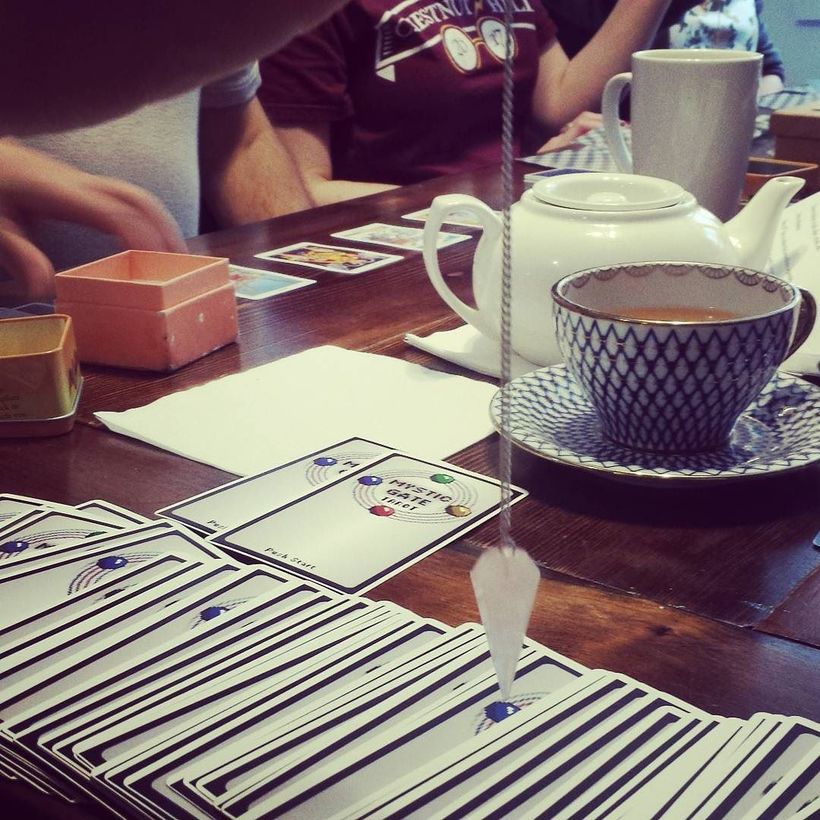
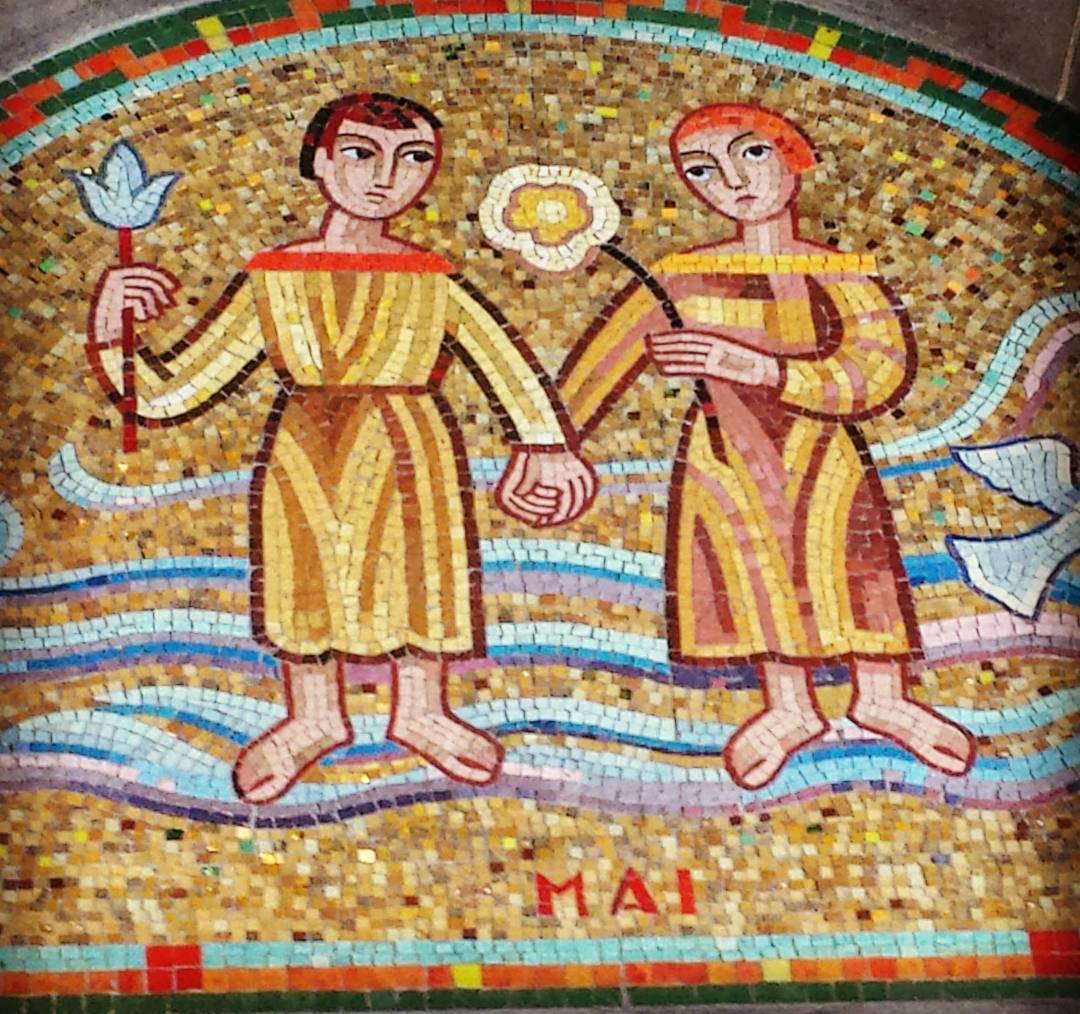
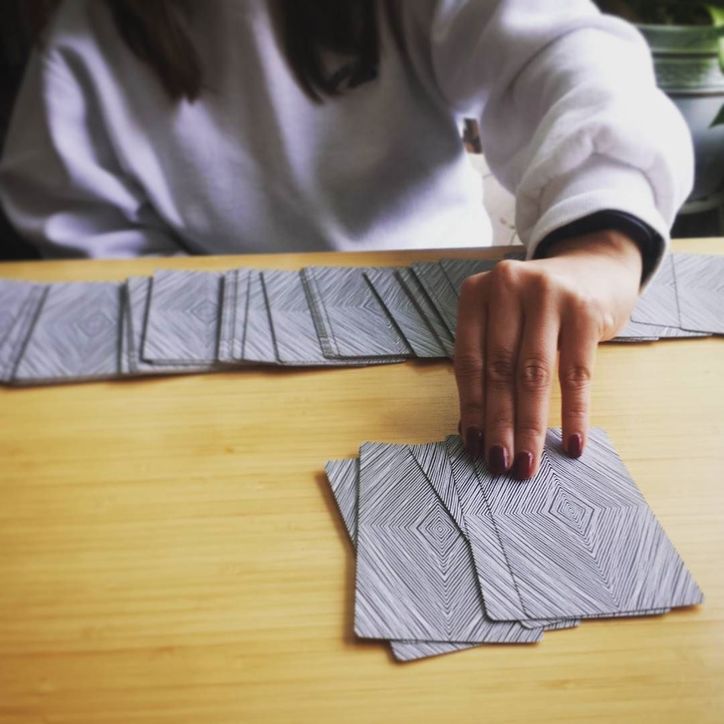
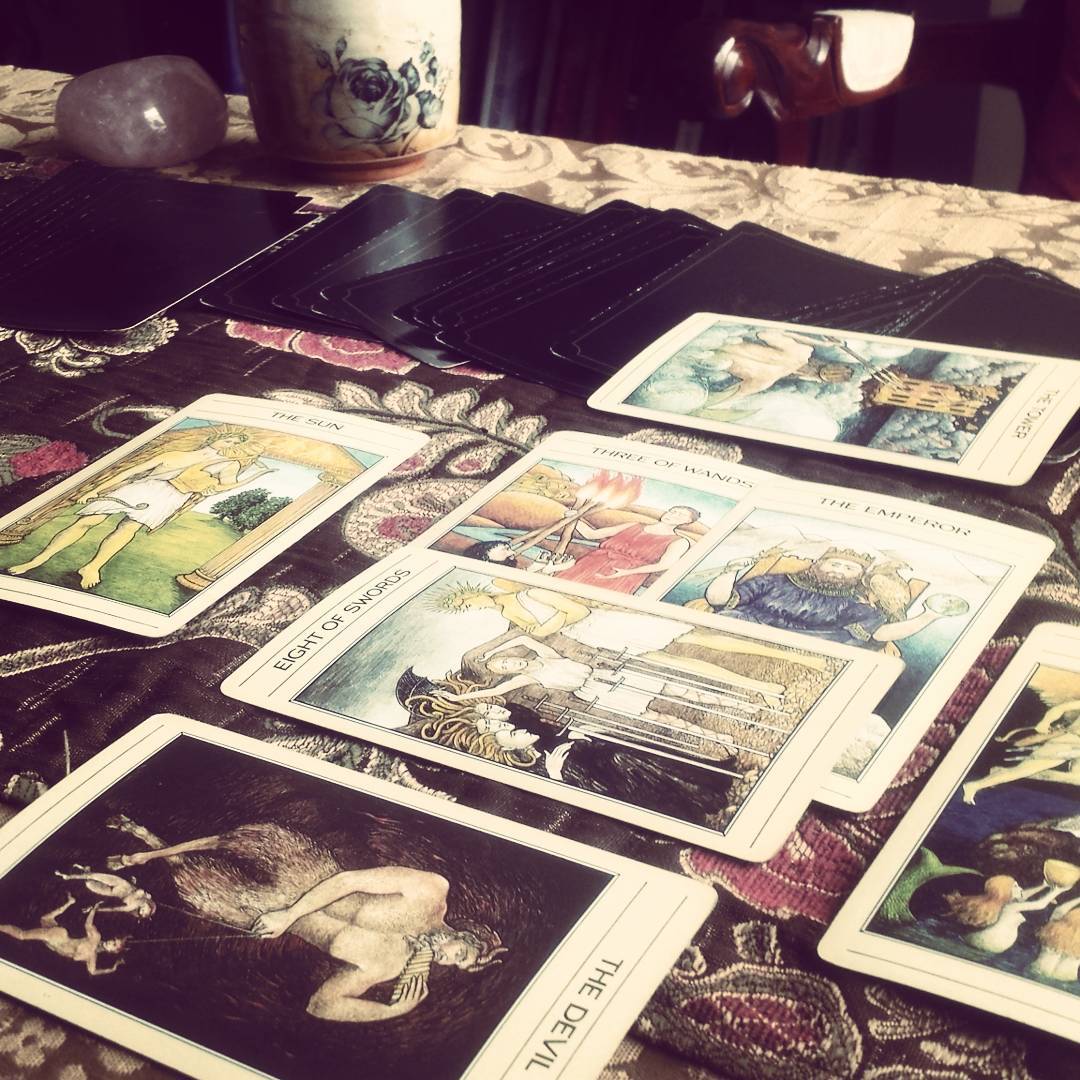
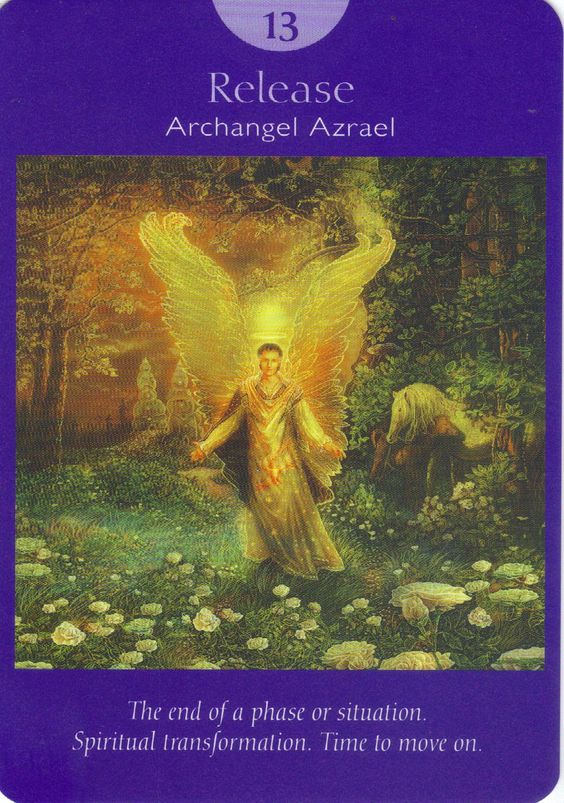
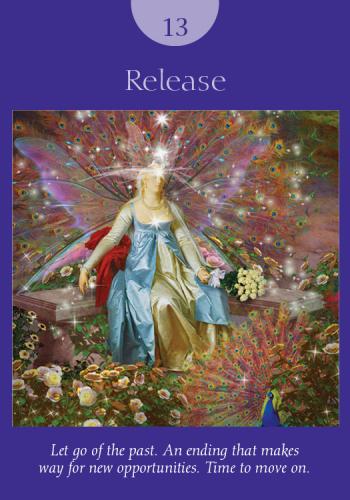
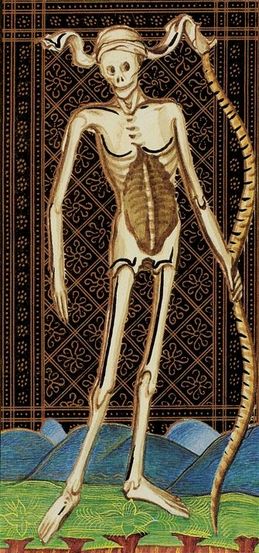
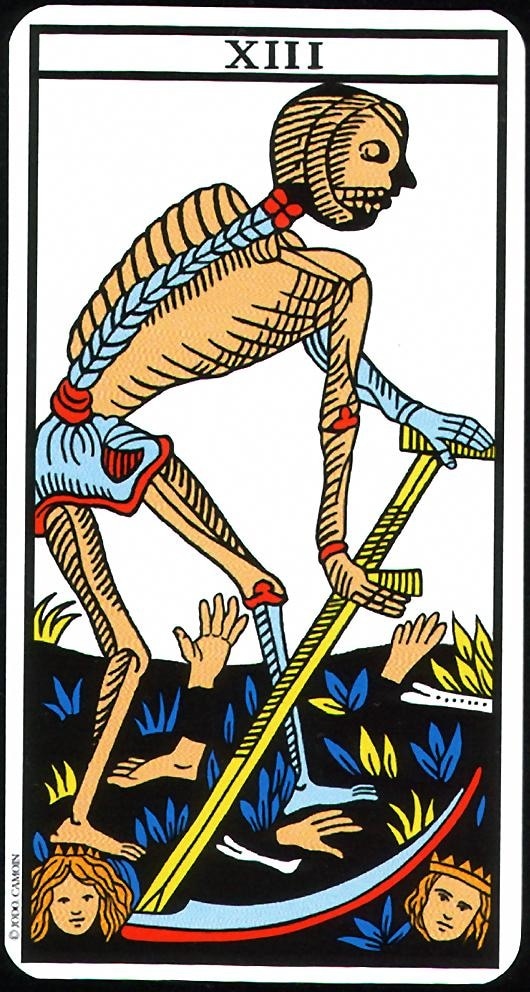
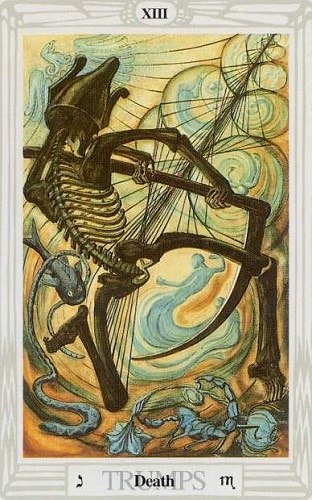
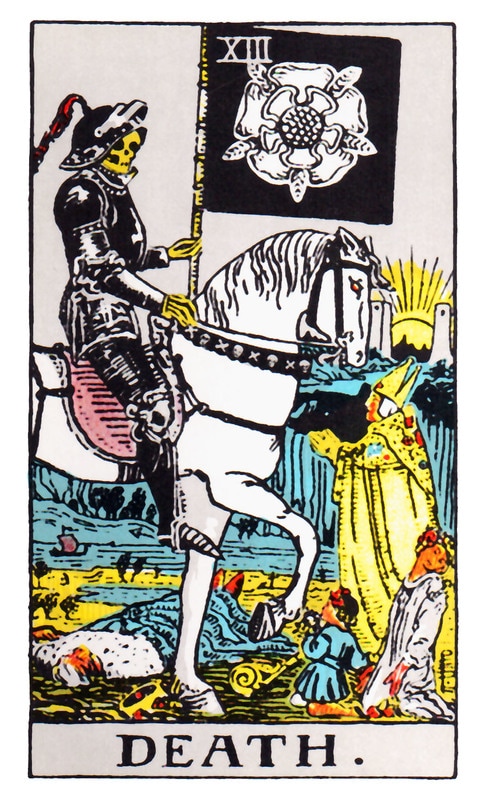
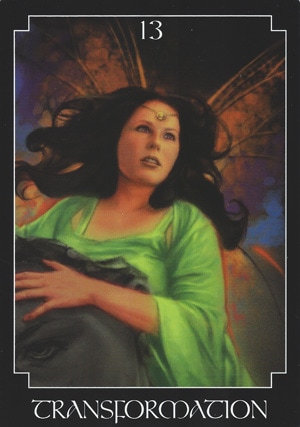
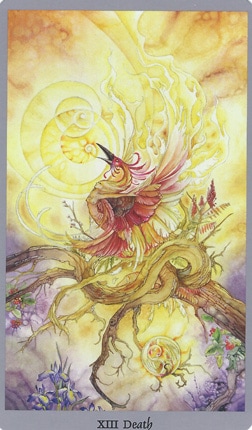
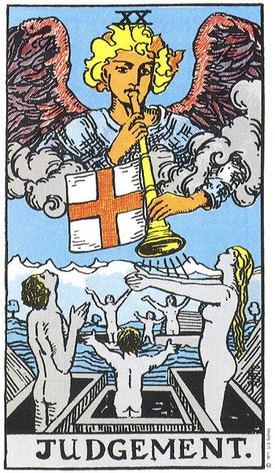
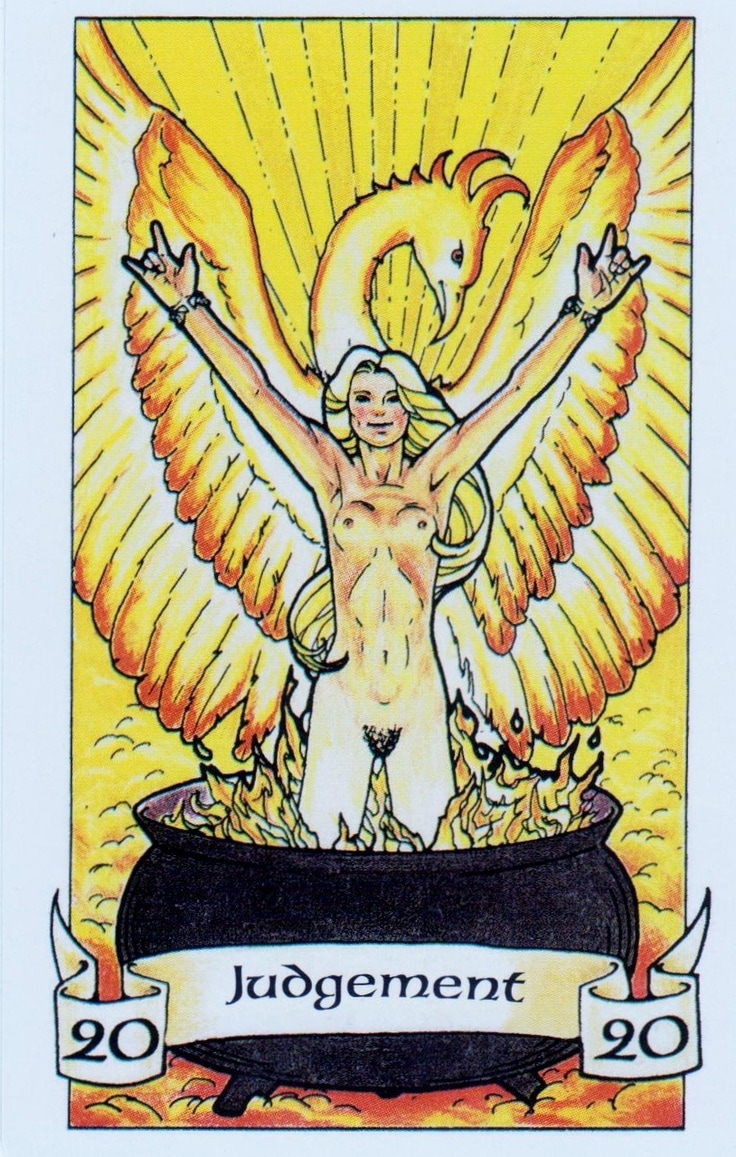
 RSS Feed
RSS Feed
